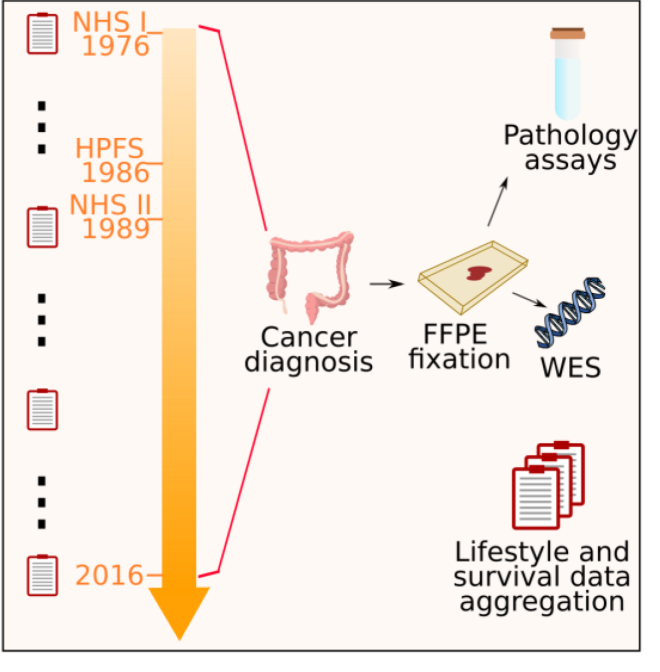Red Meat and Colon Cancer: A Link Is Found
It has long been suggested that consumption of red meat increases the risk of colon cancer. Scientists have now demonstrated a possible mechanistic link between the two in human tumors.

“Our study identified for the first time an alkylating mutational signature in colon cells and linked it to red meat consumption and cancer driver mutations,” said Marios Giannakis, MD, PhD, an assistant professor of medicine at Harvard Medical School and a physician at Dana-Farber Cancer Institute who is senior author of a study published in AACR’s journal Cancer Discovery.
“These findings suggest that red meat consumption may cause alkylating damage that leads to cancer-causing mutations in KRAS and PIK3CA, thereby promoting colorectal cancer development,” Giannakis said. “Our data further support red meat intake as a risk factor for colorectal cancer and also provide opportunities to prevent, detect, and treat this disease.”
Giannakis has been working for years to discover genes that are mutated and important for colorectal tumors. In 2014, he received the Blue Hope Research Award from the Colorectal Cancer Alliance, which utilized the AACR’s peer review process to select a scientist taking a deeper look at biomarkers associated with treatment of colon cancer.
“AACR has been fantastic for young investigators, like myself, both as I was transitioning from training as a clinical and postdoctoral research fellow to faculty as well as now, as a young faculty,” Giannakis said recently. “I believe funding and support for young investigators are of paramount importance, and it wouldn’t have been possible to proceed on this line of investigation without the AACR fellowship I received a few years back, which has been instrumental in contributing to the sequencing and characterization of some biospecimens that we used in this study.”
To identify genetic changes associated with red meat intake, Giannakis and colleagues sequenced DNA from matched normal and colorectal tumor tissues from 900 patients with colorectal cancer who had participated in one of three nationwide prospective cohort studies, namely the Nurses’ Health Studies and the Health Professionals Follow-Up Study. All patients had previously provided information on their diets, lifestyles, and other factors over the course of several years before being diagnosed with colorectal cancer.
Analysis of DNA sequencing data revealed the presence of several mutational signatures in normal and cancerous colon tissue, including a signature that indicates alkylating DNA damage. The alkylating signature was significantly associated with consumption before diagnosis of processed or unprocessed red meat, but not with consumption of poultry or fish, or with other lifestyle factors.
The signature was also associated with patient survival: Patients whose tumors had the highest levels of alkylating damage had a 47 percent greater risk of colorectal cancer-specific death compared to patients with lower levels of damage, Giannakis said.
In addition to being previously supported by an AACR/CCA fellowship, Dr. Giannakis’ research is also supported by a Stand Up To Cancer Colorectal Cancer Dream Team grant. The Dream Team grant is administered by AACR, the Scientific Partner of Stand Up To Cancer.
